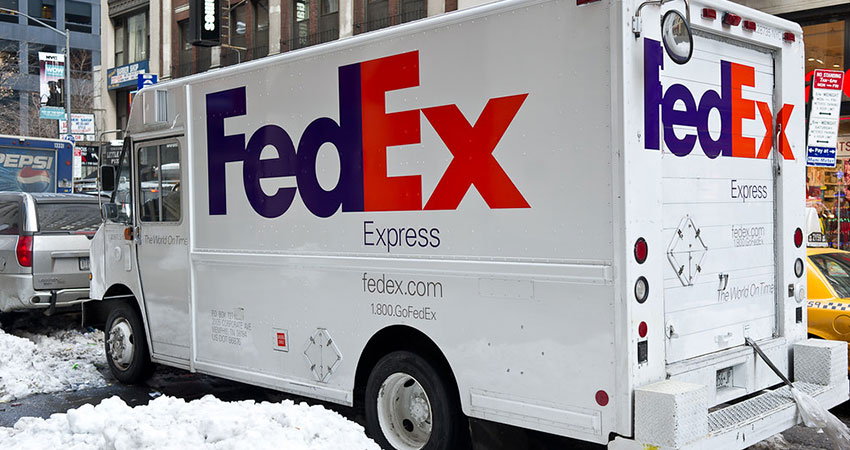Amazon is telling third-party sellers on its marketplace they can’t use FedEx Ground for Prime deliveries this holiday season, citing performance issues, according to the Wall Street Journal, and saying the policy will remain in force until there are improvements.
UPS and other carriers like the U.S. Postal Service, if they can find room in their clogged networks, stand to benefit from the decision in the short term. It also remains to be seen how quickly FedEx can clear out its backlog and return to normal service levels. All are pushing greater volume through a smaller funnel, due to six fewer selling days this holiday season with a later Thanksgiving.
A FedEx spokesperson told WSJ that Amazon’s decision only affects a small number of shippers but “limits the options for those small businesses on some of the highest shipping days in history,” adding “The overall impact to our business is minuscule.”
The timing of the issue is bound to cause headaches for FedEx, which will post its Q2 earnings today and have to answer questions from analysts.
Amazon is giving third-party sellers options: they can pay more for FedEx Express, or use FedEx Ground for non-Prime orders, i.e. those without the one-day guarantee. 3P sellers make up more than 50% of the revenue from the Amazon marketplace.
According to ShipMatrix data analysis, UPS made on-time deliveries 92.7% of the time in the week following Black Friday, while FedEx’s rate was 90.4% and Amazon hit 93.7% when handling its own packages. All three are handling record volumes this holiday season.
In the background, of course, is Amazon’s split with FedEx earlier this year, dropping both its Ground and air-based Express services after working with them for years. It’s unclear which side blinked, but many observers believe FedEx balked at Amazon’s contract terms and profit erosion.
After building out its logistics capabilities over the past several years through investing billions, and with its established market dominance, Amazon continues to flex its muscles and dictate terms.
Jerry Hempstead, a parcel spend consultant, said this recent decision by Amazon appears to be performance driven, as FedEx, UPS and Amazon have all experienced weather-related delivery issues over the past couple weeks. And it’s putting shippers who primarily use FedEx in a bind. It also may push some shippers into the welcome arms of Amazon logistics and FBA.
“They’re in a real world of hurt,” Hempstead said. “Either they can’t peddle on Amazon, or they switch to a more expensive FedEx service, or go to a carrier they don’t have a contract with. They can pick up the phone and tell UPS, I need a new contract today. UPS might say, I’m really busy right now, or they can match the FedEx deal but say, ‘you can’t leave for three years or there’s a huge financial penalty.’ Basically, Amazon has its foot on the neck of the third-party sellers.”
Hempstead said he was hearing reports that FedEx was so far behind that shipments were not being scanned. “A customer of mine who dropships into a FedEx hub and is an Amazon third-party seller said none of his parcels were scanned for two days, so he had no visibility into his shipment. Now what are his options?”
In the meantime, Hempstead said FedEx needs to take an “all hands on deck” approach to clearing out its volume backlog, including tapping account reps who aren’t as busy this time of year. “They should tell them which hub to report to between now and Christmas eve, or throw packages into the back of their car,” he said.
John Haber, founder and CEO of Spend Management Experts, said Amazon may have a legitimate issue with FedEx service levels causing strain on its customer service, but it’s still awful timing for 3P merchants and their end customers.
“It could create more havoc as the 3P sellers search for another solution,” Haber said. “Moving the shipments to FedEx Express would be incredibly expensive and many of these sellers may not have contracts with UPS. Even if they do, they’ll have major problems getting UPS to pick up these packages; they’ll likely have to drop them off at an authorized UPS shipping location.
Haber said the USPS may be easier for stranded shippers to switch to than UPS, “but it still creates a major headache and distraction for these Amazon sellers.”
According to the Los Angeles Times, some merchants have complained to federal antitrust regulators that Amazon is using its market dominance to push them into using its logistics services and FBA, which come at a steeper price during peak season.

